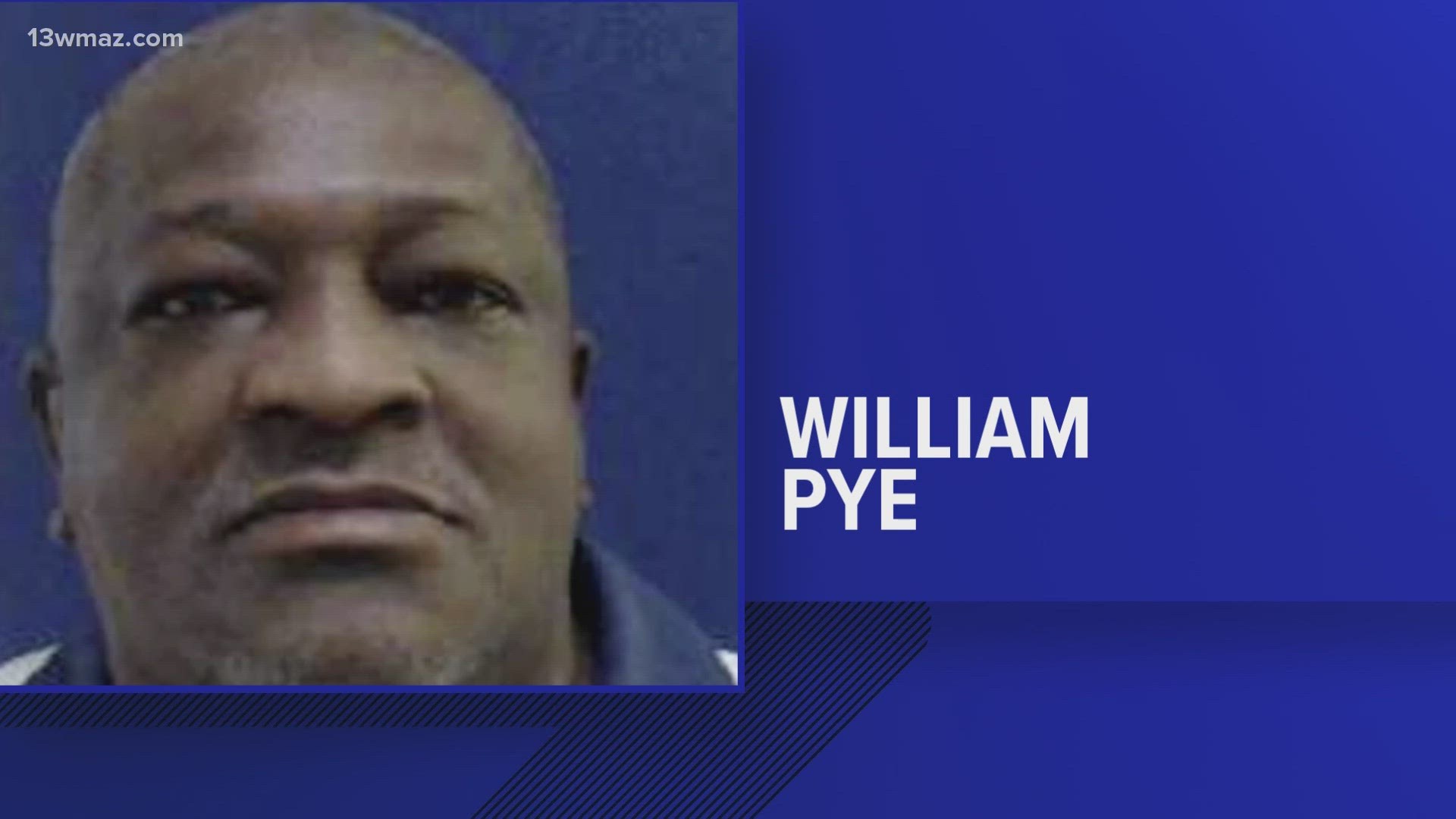ATLANTA — The Georgia Board of Pardons and Paroles allowed a Griffin man's execution to move forward after a hearing Tuesday morning, the board announced in an email.
They approved for the execution of 59-year-old Willie Pye's to take place on Wednesday.
Pye was convicted in the 1993 killing and rape of Alicia Yarbough in Spalding County.
According to the Associated Press, prosecutors accused Pye and two others of going to Yarbrough's home to rob the man she was living with at the time. But they instead found only Yarbrough, the AP reported.
They say they took Yarbrough to a motel where they argued she was raped and then taken to a dirt road where she was shot three times while lying facedown on the ground.
However, attorneys for Pye argue in a 36-page petition that Pye's original attorney, Johnny Mostiler, was ineffective and failed to give Pye a fair shake in court.
They outlined systematic issues in the Spalding County public defender office back in the 1990s, including alleging that Mostiler was working off of a "script" from previous capital punishment cases and failed to bring up mitigating factors in Pye's case.
In particular, they point to his attorney not showing the jury evidence of Pye's mental disability, noting Pye only had an IQ of 68.
"Mr. Pye’s trial is a shocking relic of the past, when a racist, overworked public defender, Johnny Mostiler, effectively abandoned his post, leaving no one and nothing, to stand between his client and death," Pye's attorneys wrote. "Clemency provides the 'fail safe' to correct what the courts could not."
They characterized Pye's childhood as being marked by "profound poverty, neglect, constant violence in his family home" preventing his healthy development. That evidence, attorneys argue, "supports a life sentence" rather than condemning Pye to death.
They also note his remorse and positive influence within the prison.
With the new evidence that was not presented to the jury, the attorneys for Pye cite letters from jurors who, among other things, wrote that they were "not comfortable with my decision to sentence Mr. Pye to death." Three of the jurors wrote in support of Pye.
The board also heard arguments against stopping Pye's execution, but since the meeting was private, it is unclear what the case against Pye was.
The board's rejection of Pye's petition on Tuesday means that he will be put to death on Wednesday at 7 p.m. at the Georgia Diagnostic and Classification State Prison, which is where Georgia's executions take place.
If they chose to step in, the board had two options: they could have commuted Pye's sentence to life in prison with or without parole or placed Pye's execution on hold.
Pye's death will also be the first execution in Georgia since January 2020, when the state of Georgia agreed to halt executions as the COVID-19 pandemic raged.
The Georgia Board of Pardons and Paroles is the sole authority in the state of Georgia that can commute an inmate's sentence.
According to filings, a federal appeals court in Atlanta had previously weighed in saying in an unpublished opinion that Pye's attorney failed to effectively represent Pye during trial. It is not uncommon for lower courts not to publish their decisions publically.
While that court vacated his death sentence, the case was appealed to the 11th Circuit Court of Appeals which found that the federal court did not have the authority to vacate Pye's sentence even if they believed that the state courts were "clearly wrong."
You can read Pye's attorney's full appeal here.

